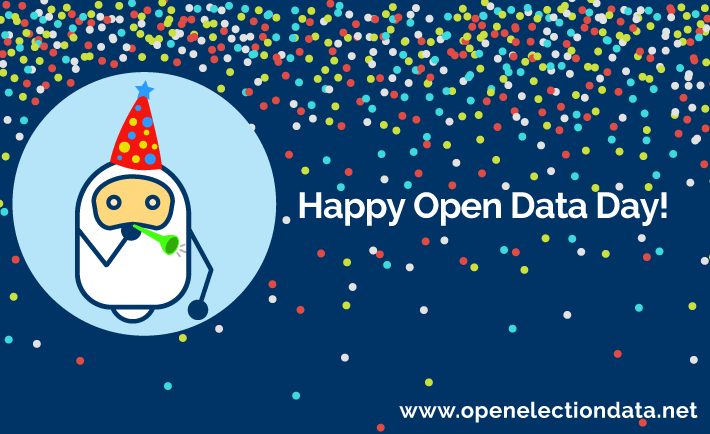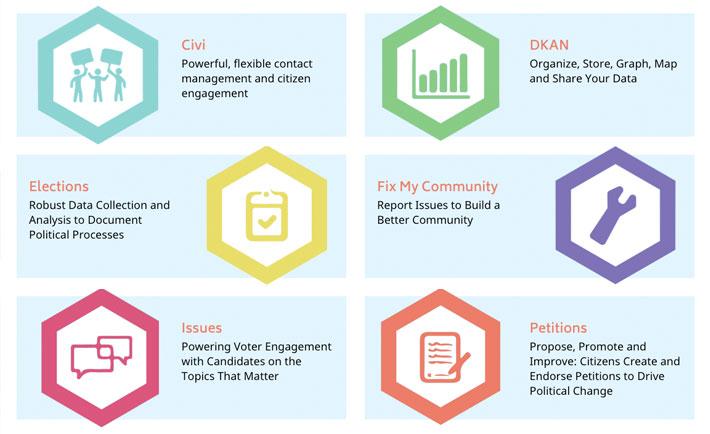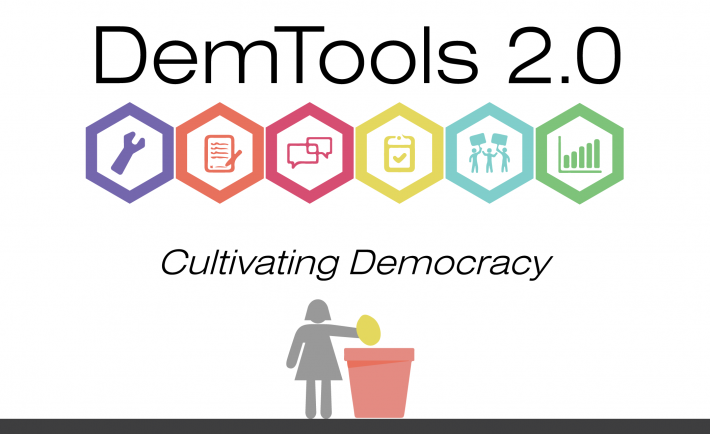Social media and the Internet have had a drastic effect on the surprise results of yesterday’s election in the United States, driving the spread of information—and misinformation—at times bringing voters together and, perhaps more often, pushing them apart. As the spotlight shifts off of the U.S. in the aftermath of November 8, it’s important to recognize that this is not a uniquely American trend. More than half of Internet users now report using social media as a primary source of news, according to a study across 26 countries, and more than one quarter call it their main news source. In developing countries where reliable news sources are more limited, those numbers may be even higher. As reliance on social media and the Internet for news and information rises exponentially, political discourse is also rapidly moving online. A free and open Internet, where citizens can engage in fair dialogue and access accurate information, is thus critical to modern democracy and human rights.
The distributed denial of democracy
What the blockchain could mean for democracy in the digital age
On Monday, the National Democratic Institute (NDI) joined the Bitfury Group and New America to launch the Blockchain Trust Accelerator, which will work to connect governments with the technologists and resources needed to pilot blockchain applications aimed at enhancing good governance. The blockchain -- which is, briefly put, an incorruptible and public ledger made up of data that is stored decentrally, entirely distributed and interconnected -- is most well known for being the underlying software that was invented to enable the Bitcoin digital currency. While the future of the blockchain is still being written, it’s possible the primary uses will not even be for currency or financial technology.
Innovating in World Megacities: A Search for Stories
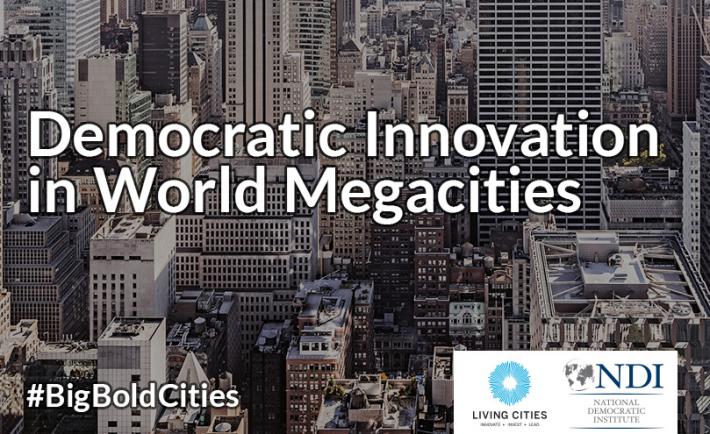
Living Cities and NDI have entered a partnership to find and share the stories of innovators in world megacities.
Every 20 years, the United Nations gathers to discuss the work of cities and renew political commitment to sustainable urbanization. In this year of the third Habitat conference, there is a vibrant global conversation happening around poverty reduction and a “new urban agenda.” Innovation will be a critical part of that conversation, as leaders and policymakers look for the new regulation, new office or new technology that could pick the lock on an intractable problem.
The ability to innovate is absolutely critical if cities are going to meet the ever-evolving challenges of the 21st century.
This Open Data Day, Sign Up to Design Icons at Our Election Iconathon!
First off, happy Open Data Day. To celebrate this day of data liberation, we at NDI’s Open Election Data Initiative invite you to to participate in our Election Iconathon event on Saturday, March 19th where we will create icons that bring election data to life. Slots are filling up fast, so we encourage you to sign-up before they’re all gone. Throughout our work we've found that images, often through infographics, can tell memorable stories about elections. So we'd like to invite you to help us create icons that will do justice to the data our election monitoring partners collect and publish.
An Inclusive Process to Redesign NDI.org
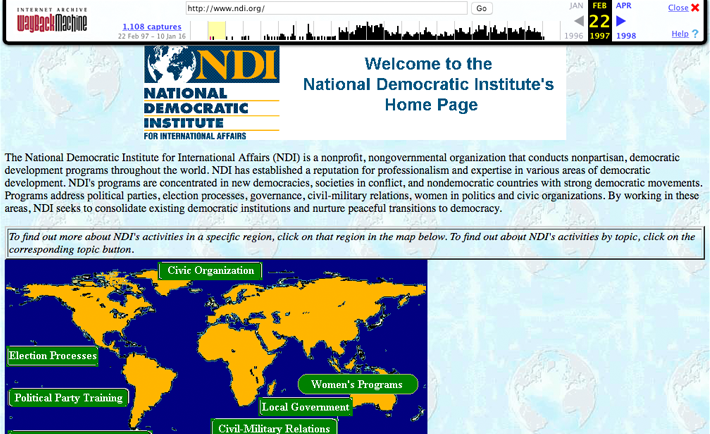
This Wayback Machine screenshot shows NDI’s original website from February 22, 1997. We’ve come a long way! Click here to explore the evolution of NDI’s website.
NDI launched a project to redesign its website this week. The redesign presents an exciting opportunity to put a fresh face on NDI's work, while preserving the depth of content that makes NDI.org such a valuable resource. In keeping with NDI's values and in the interest of meeting your needs, we hope to make this process as open and inclusive as possible...but we need your help!
Colin Delany Discusses Political Parties and Tech
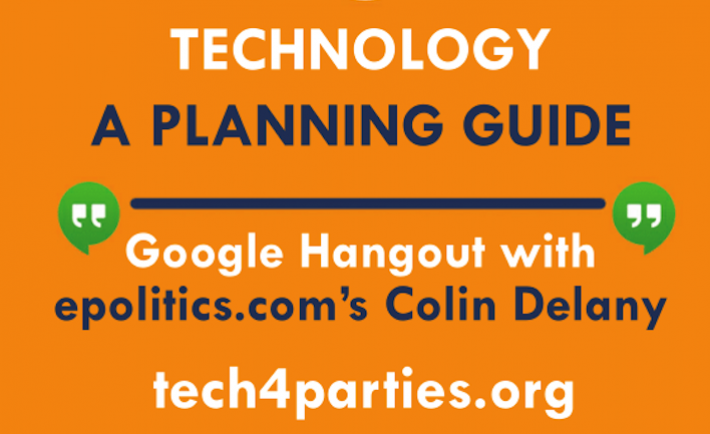
NDI's Politicial Parties team released a new guide to help parties taking advantage of the opportunities provided by Information Communication Technologies (ICTs).
On November 13th, the National Democratic Institute hosted an online ‘Question and Answer’ session with Colin Delany, editor and founder of epolitics.com. Delany was a lead contributor to NDI’s new tech guide, which, among other things, aims to help parties deploy new information communication technology (ICT) tools to organize and reach out to contacts, increase two-way communication with citizens, and conduct more strategic outreach.
What’s New in DemTools 2.0?
NDI is launching a new and improved version of DemTools, a technology toolkit for civil society and government, on December 9 in Washington, D.C. We’ve put a lot of sweat, tears, and code (no blood so far) into this adventure and are ready to share it with the world. DemTools 2.0 upgrades and expands our existing set of tools, which was deployed by 82 organizations around the world in the last year.
DemTools 2.0: Democratizing Access To Political Organizing and Communication Technology
On December 9, NDI will unveil DemTools 2.0, which upgrades and expands NDI’s existing suite of tools that promote democratic practices through the Internet, along with three innovative new applications for managing government petitions, crowdsourcing community problems, and open data, mapping and visualization.
Choose Your Adventure: Hackathon Helps Build Smart Games for Democratic Development

Developers at AWS hackathon burn the midnight oil to create prototype games to teach democratic lessons.
Over 18 grueling hours, more than 200 developers at the ReInvent Conference in Las Vegas hosted by Amazon Web Services (AWS) worked to solve tech challenges submitted by four non-profit organizations: UNICEF, NPR’s Marketplace, Donors Choose and NDI. NDI’s challenge to “design a framework for building story-driven text-based games that convey lessons in an engaging ‘choose your own adventure’ format,” drew more participants than any other project.
Throughout the hackathon -- an event in which a large number of people meet to engage in collaborative computer programming -- five teams worked to deliver functional prototypes of a game system. When it was all over, “Team 29” was declared the winner. The winning team and several other participants committed to bring the demo version to a fully-functional product in the coming months, which NDI will be able to use to enhance its programs.
“The Medium is the Message” for Relaunched NDItech Blog
On the NDItech team, one of our goals is to share what we learn and highlight the accomplishments of our partners. Our blog -- NDItech.org -- is our primary platform to accomplish that, but it is also a testing ground for improving the accessibility of online platforms across the Institute.



